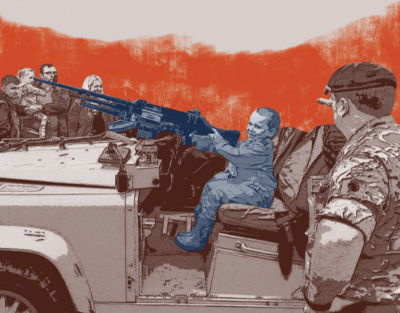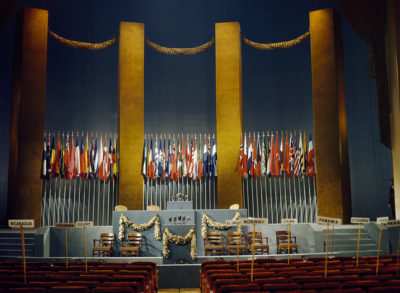When soldiering gets sexy: the militarization of gender equality and sexual difference
openDemocracy
How does militarism change social and cultural expectations of gender roles and relations? This is a huge question. This article by Vron Ware considers three areas.
Regardless of what they say about a man in uniform, it’s clear that some of them have a particular appeal when they’re half naked and preferably holding a gun.
The UK charity Go Commando which raises money for Royal Marines and their families, has recently launched its third successive calendar featuring marines in various stages of undress. The calendar went through official channels before being launched with acclaim in the national media. Its first print-run sold out within days.
In this now familiar genre, the black and white portraits of the calendar boys reveal them to be as muscly and virile as their female counterparts – who now include military wives – have tended to be demure and coquettish. Whether their nakedness is concealed by rifles, rugby balls, boxing shorts or the bottom halves of their uniforms, the marines’ rippling chests and arms suggest that the male military body represents new standards of idealised masculinity.
The appeal of the original calendar girls was that they were older women with real (that is to say, ageing, not thin and non-airbrushed) female bodies, consciously parodying the pin-up. But this latest generation of copycats celebrates the cultivated toughness and brotherly solidarity for which marines are famed. They appear to be as pumped up and waxed as male supermodels, strangely reminiscent of the old-fashioned Action Men often found languishing in junk shops.
See more: equality, military in society, gender










